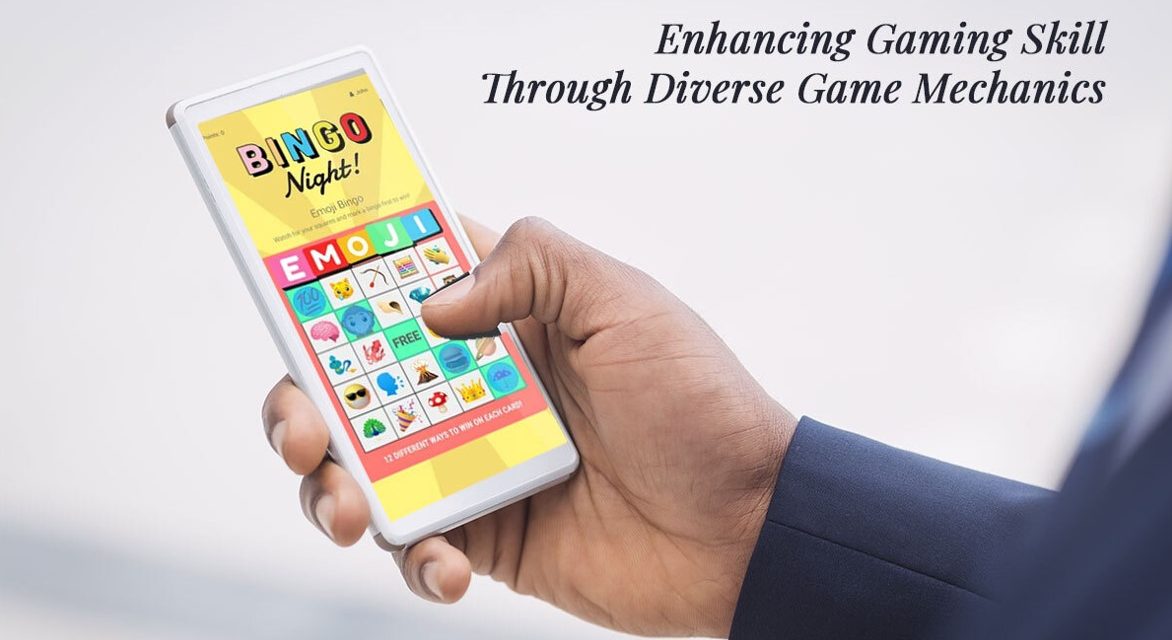The gaming world has evolved far beyond simple button mashing into something far more intricate. Gone are the days when jumping over barrels in Donkey Kong was considered the height of gaming skill. Now, players navigate complex 3D environments, manage resource systems that would make an economist’s head spin, and execute split-second decisions that would make a chess grandmaster proud.
Diverse game mechanics not only apply to digital gaming but also extend to traditional formats. For instance, understanding mechanics in strategy-based games can help players develop skills transferable to other games, such as learning how to play bingo effectively. These fundamental principles of strategic decision-making and pattern recognition apply across various gaming genres, improving adaptability and performance.
The Veterans of Gaming
Step into any game cafe, and you’ll see the veterans at once. They’re the players whose fingers fly across keyboards with habitual accuracy, who can anticipate where enemies will spawn before they even show up. These aren’t lucky guesses – they’re the product of hundreds of hours spent learning and perfecting game mechanics, the unseen rules that govern every virtual realm.
The Gaming Journey
Most folks start gaming casually enough. Maybe they picked up Mario Kart at a party or got dragged into Fortnite by their friends. Some keep it casual, treating games as their weekend wind-down ritual. Others get bitten by the competitive bug, diving headfirst into frame data discussions and spending hours in training modes. Both paths are perfectly valid, and both types of players benefit from getting cosy with how games work under the hood.
Beyond Surface Level
The real magic happens when players start seeing beyond the flashy graphics and cool effects. Take Street Fighter – newbies might think it’s all about memorizing special move inputs, but veterans know it’s a complex dance of spacing, timing, and mind games. Or look at Minecraft, which seems simple on the surface but contains enough mechanical depth to keep players engaged for years, building everything from simple dirt houses to working computers.
Learning Through Experience
Games teach in ways that would make educational theorists jealous. Dark Souls doesn’t just tell players to “git gud” – it builds their skills organically through increasingly complex challenges. Each death teaches something new, each victory builds confidence, and before they know it, players are taking down bosses that once seemed impossible. It’s the same story with Portal, starting players with simple portal placement before they’re flying through the air solving mind-bending physics puzzles.
The Professional Scene
The esports scene really drives home how deep game mechanics can go. Watch a pro Counter-Strike match, and you’ll see players using grenade trajectories they’ve practiced thousands of times, executing strategies that rely on pixel-perfect positioning. In League of Legends, pros aren’t just playing the same game as everyone else – they’re pushing champions to their mechanical limits in ways most players never even consider.
Challenges in Growth
Growing as a player isn’t always a smooth ride. Some games throw too many tutorials at players, turning what should be an exciting discovery into a boring lecture. Others dump complex mechanics on players with no context, like being thrown into the deep end without learning to swim. The smartest players find their own path, whether that’s grinding practice modes, learning from replays, or just playing tons of matches.
Skill Transfer and Adaptation
The beauty of gaming skills is how they blend and transfer. The strategic thinking from Civilization comes in handy during tense Battle Royale endgames. The quick decision-making learned in fighting games proves useful in MOBAs. Even seemingly simple games like Among Us teach valuable lessons about reading opponents and managing information – skills that translate across virtually every competitive game.
The Evolution of Skills
Gaming has quietly become one of the best skill-building exercises going. Each new mechanic learned makes a player’s gaming lexicon stronger, each problem solved enhances problem-solving skills. The best news? There’s always something new to learn. Just when players think they’ve got a game down, they learn new tricks, new strategies, new ways to extend their skills.
True Mastery
Watching any good player for long sure will make anybody feel that mastery is not a matter of simply memorizing combos or blindly following guide builds. It is a matter of internalizing game mechanics, learning how to read situations, and reacting accordingly. Be it grinding the ranked ladder or merely hanging on with a gaming clique, it is mechanics that separate the button mashers from real players.
The Path to Improvement
Becoming good is seldom a straight line; it is full of flashes of inspiration, setbacks that induce rage, and everything in-between. Some develop their strategic intelligence through games like Hearthstone while others nurture theirs with the timing constraints of rhythm games or the resource-managing ones of survival games. Each genre has its own improvement mechanics and its own lingo.
Conclusion
Gaming these days has transcended the confines of entertainment and stands for growth, for mastery, for enjoying development of one or more skills that are measurable. Every time a player learns a new mechanic or defeats a challenging trial, they strengthen some abilities that go beyond the game itself. There’s always another level to reach, another skill to conquer, another mountain to climb. And that defines the very essence of the gaming world: that it is so rewarding and uniquely.










![[Rumor] Chrono Trigger remake or remaster could already be in development](https://vgleaks.com/wp-content/uploads/2026/02/chrono-trigger-150x150.jpg)


